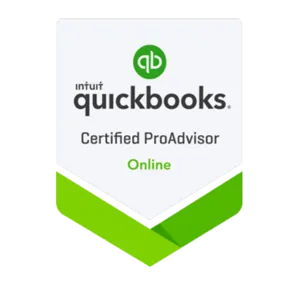OUR BLOG
Your hub for insightful and actionable content to help you unlock the potential of your business.

Living Out Allowance for Contractors in Canada: What You Need to Know
If you're a contractor in Canada, you've probably heard about the Living Out Allowance (LOA). But what does it really mean for you? In this blog, we'll break down everything you need to know about LOA in a straightforward way.
What is Living Out Allowance?
LOA is a benefit that contractors receive when they must work away from their usual place of residence. This allowance is meant to cover the extra costs of living away from home, like accommodations, meals, and incidental expenses. For instance, if you’re a construction worker and your job require you to work in a different city for a few weeks, you might receive LOA to help with the additional living costs.
How Does LOA Work?
The key thing to know about LOA is that it's not considered as part of your regular income. This means it's tax-free – a big plus! However, there are certain conditions that need to be met for this allowance to be tax-exempt. According to the Canada Revenue Agency (CRA), LOA payments can be excluded from income if:
The work assignment is temporary.
The work location is far enough from your home that you need to sleep away from home.
You're required to pay for your own meals and accommodation while away.
How Much Can You Get?
The amount of LOA you can receive depends on several factors, including your employer, the location of the work, and the industry standards. Some employers might offer a flat daily rate, while others may cover actual expenses up to a certain limit. It's important to understand the specifics of your LOA agreement with your employer.
What About Receipts?
One common question is whether you need to keep receipts to prove your expenses. Generally, for tax-exempt LOA, you don't need to keep receipts. This is because LOA is considered a non-accountable allowance – you get a set amount regardless of what you spend. However, it’s always a good idea to keep track of your expenses and stay within reasonable limits.
LOA and Tax Implications
As mentioned, one of the biggest benefits of LOA is its tax-free status. But be aware, not all LOA payments qualify for this. If the allowance you receive is more than what the CRA considers reasonable, or if your work assignment isn’t temporary, the LOA might be taxable. It's crucial to check with your employer or a tax professional to understand the tax implications of your specific LOA.
LOA in Different Provinces
Another thing to consider is that the rules and rates for LOA can vary from one province to another. Each province has its own standards for what’s considered a reasonable LOA amount. It's worth looking into the specific regulations for the province where you're working.
How to Manage LOA in Your Finances
Managing your finances as a contractor can be tricky, especially when you’re dealing with things like LOA. Here are a few tips:
Budget Wisely: Use your LOA to cover your necessary expenses while away but be mindful of overspending.
Save for Taxes: If there’s any doubt about the tax-exempt status of your LOA, it’s safe to set aside some money for potential taxes.
Seek Professional Help: If you’re unsure about how to handle LOA in your taxes, it’s a good idea to consult >> let's chat.
Conclusion
LOA is a great benefit for contractors who must travel for work. It helps cover the additional costs and can be tax-free if certain conditions are met. Understanding how LOA works and its tax implications is crucial for managing your finances effectively. If you have any doubts or need assistance, don’t hesitate to reach out to experts like us at Competitive Edge Business Solutions. We’re here to help you navigate the complexities of contractor finances.
At Competitive Edge, we specialize in helping contractors and other professionals with their bookkeeping, tax needs and more. Whether it’s understanding your LOA or managing your overall finances, our team is equipped to provide the support you need. Contact us today to ensure your financial health is taken care of, so you can focus on your work with peace of mind.
Remember, being informed is key to making the most of benefits like LOA. Stay updated, stay prepared, and let your work take you places without the financial stress!






